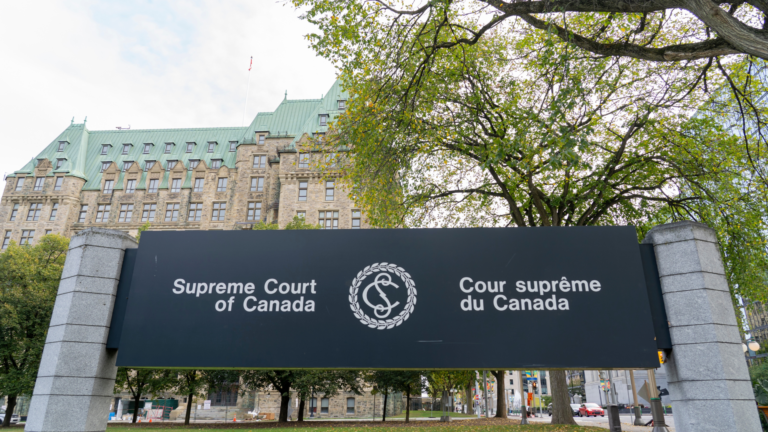The ongoing debate over youth sentencing in Canada focuses on finding a balance between justice rehabilitation and public safety in serious criminal cases.
Introduction: The Challenge of Sentencing Minors as Adults in Canada
Youth crime presents a unique challenge in the Canadian criminal justice system. While the Youth Criminal Justice Act (YCJA) emphasizes rehabilitation and reintegration, certain cases involving serious crimes prompt prosecutors to seek adult sentencing for minors. This shift raises crucial legal and ethical questions about how young offenders should be treated in the justice system. Should minors, whose cognitive and moral development are still in progress, be held to the same legal standards as adults? Or should the justice system prioritize their rehabilitation above all else? These are pressing questions that the courts, legal experts, and families must grapple with when dealing with youth crime cases.
In recent years, cases involving violent offences committed by minors have sparked national debate, with legal experts questioning whether adult sentencing aligns with constitutional protections. This blog explores the complexities of youth sentencing, recent Supreme Court deliberations, and the role of The Criminal Law Team, a top criminal law firm specializing in youth defence.
Understanding the Youth Criminal Justice Act (YCJA)
The YCJA governs how minors aged 12 to 17 are treated under the Canadian legal system. It was introduced in 2003 to replace the Young Offenders Act, with the primary objective of ensuring that young people are treated fairly and proportionally based on their level of responsibility and maturity. Its core principles focus on:
- Promoting accountability while recognizing that young people have a lesser degree of moral blameworthiness.
- Prioritizing rehabilitation and reintegration rather than punitive measures.
- Encouraging alternative measures such as community-based sentences and restorative justice programs.
- Reducing reliance on incarceration by promoting extrajudicial measures, including warnings and referrals to community programs.
However, in cases involving violent offences such as homicide, aggravated assault, or sexual assault, the Crown may argue that the accused should be tried and sentenced as an adult. If granted, this significantly alters the legal consequences and defence strategies involved. A minor sentenced as an adult faces much harsher penalties, including longer prison sentences, which can have lasting consequences on their future prospects.
For more details on youth crime cases and legal defence strategies, visit The Criminal Law Team’s Youth Crime Page.
Criteria for Adult Sentencing of Minors
When a minor is charged with a serious crime, the Crown must prove that an adult sentence is justified based on specific criteria:
- The severity of the crime and its impact on victims and society.
- The youth’s prior criminal history and likelihood of rehabilitation.
- Whether the youth was close to the age of 18 at the time of the offence.
- The existence of mitigating or aggravating factors, such as mental health concerns or involvement in organized crime.
According to Canadian Lawyer Magazine, recent Supreme Court discussions have debated whether certain youth sentences violate constitutional rights.
Recent Supreme Court Deliberations Impacting Youth Sentencing
In recent years, the Supreme Court of Canada (SCC) has examined cases questioning whether sentencing minors as adults aligns with constitutional protections. A key issue is whether such sentences violate Section 7 of the Canadian Charter of Rights and Freedoms, which protects against unjust punishment.
A 2024 case under review could fundamentally change how youth offenders are sentenced for serious crimes. Some legal experts argue that adult sentences for certain crimes disproportionately impact racialized and disadvantaged youth, limiting their chances for rehabilitation. The courts have also raised concerns about whether minors fully understand the long-term consequences of their actions and the criminal justice process they are subjected to. The SCC will be considering whether the presumption of diminished moral responsibility that applies to all youth court sentencing has properly been discharged when a court is to determine whether or not to impose an adult sentence on a young person.
One significant case involved a 17-year-old charged with second-degree murder. The Crown sought an adult sentence, arguing that the crime was premeditated and brutal. However, the defence presented evidence that the accused had suffered from an untreated mental illness, raising questions about their moral culpability. The Supreme Court’s decision in this case could set a precedent for future youth sentencing cases.
Brock University’s legal analysis on youth sentencing cases provides further insights.
Case Study: The 2022 Toronto Incident
One of the most controversial youth crime cases in Canada involved the 2022 swarming death of a homeless man in Toronto. A group of teenage girls was charged with second-degree murder. This case reignited debates on whether minors should receive adult sentences for violent crimes.
While the case is ongoing, it highlights the challenges of balancing public safety with the rehabilitative goals of the YCJA. The accused minors came from diverse backgrounds, and some had no prior history of violence. Defence lawyers argued that peer pressure and lack of proper guidance contributed to their actions. However, the prosecution countered that the severity of the crime warranted adult sentencing to serve as a deterrent.
This case underscores the complexities of youth sentencing, especially in high-profile incidents that attract significant media attention. The legal community is watching closely to see whether the courts will prioritize rehabilitation or impose adult sentences to deliver justice for the victim and the public.
Read more about this case on Reuters.
Implications for Defence Strategies
Given recent legal developments, top criminal lawyers in Toronto must adapt their defence strategies to protect the rights of youth offenders. Defence lawyers emphasize:
- Challenging adult sentence applications by proving that rehabilitation is possible within the youth system.
- Highlighting mitigating factors such as lack of prior offences, family circumstances, and mental health considerations.
- Negotiating alternative sentencing options like intensive rehabilitative custody or community programs.
The Role of Legal Representation in Youth Cases
Legal representation is critical when minors face serious charges. The Criminal Law Team, a highly respected criminal law firm, has extensive experience defending young clients. Their lawyers understand the nuances of the YCJA and work diligently to ensure fair treatment for minors in the justice system.
If you or a loved one is facing criminal charges, it is crucial to seek immediate legal guidance. Learn more about what to expect after an arrest by visiting this resource.
Conclusion: Balancing Accountability and Rehabilitation
The debate over sentencing minors as adults continues to evolve, shaped by legal challenges, societal concerns, and new judicial precedents. While serious crimes require accountability, the justice system must also prioritize rehabilitation, recognizing that young offenders have the potential for change.For those facing youth criminal charges, and their parents, securing experienced legal representation is essential. The Criminal Law Team offers expert defence strategies tailored to protecting young clients’ futures. The parents, or other family members or friends, should contact TCLT today to discuss thier case and explore their legal options.







